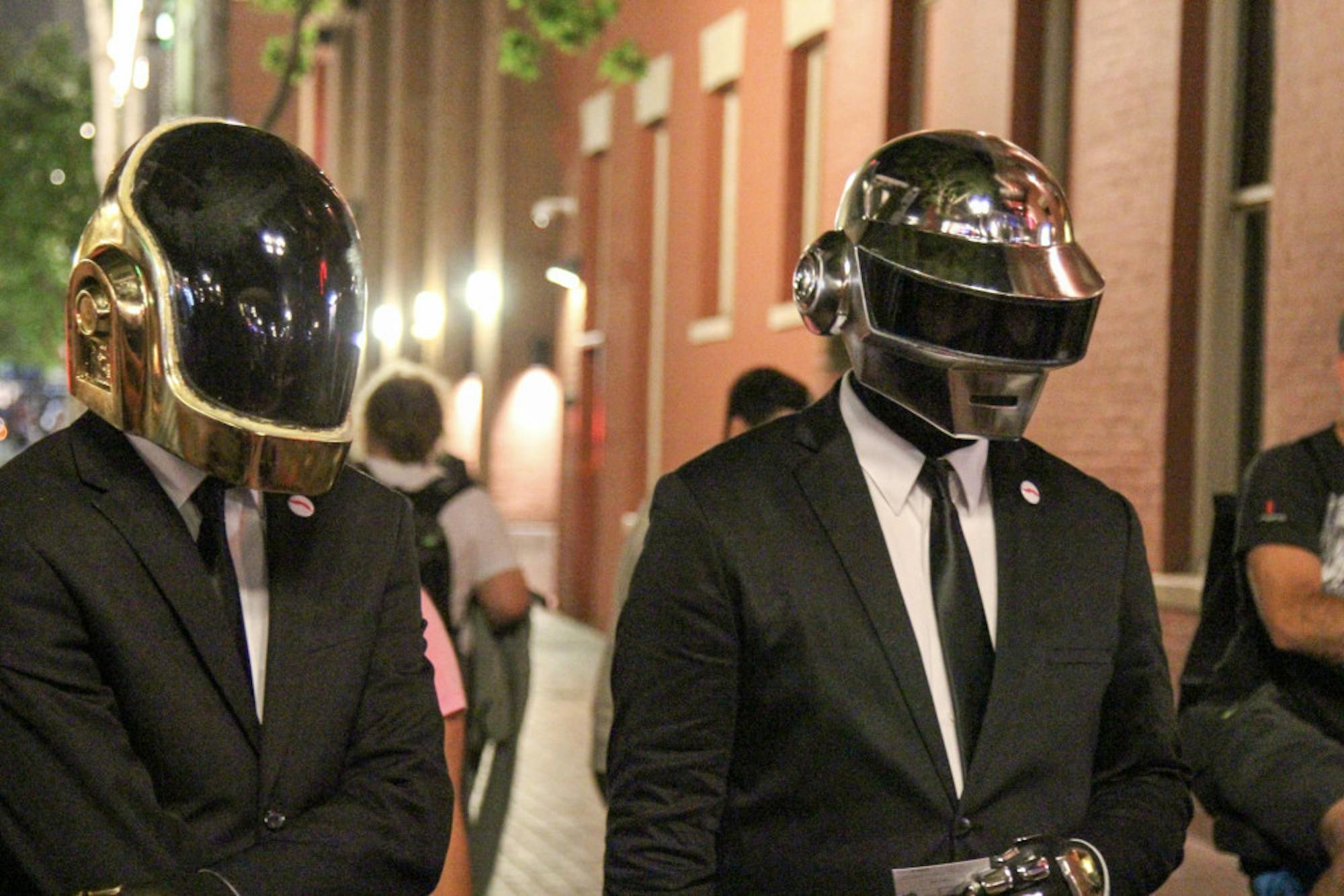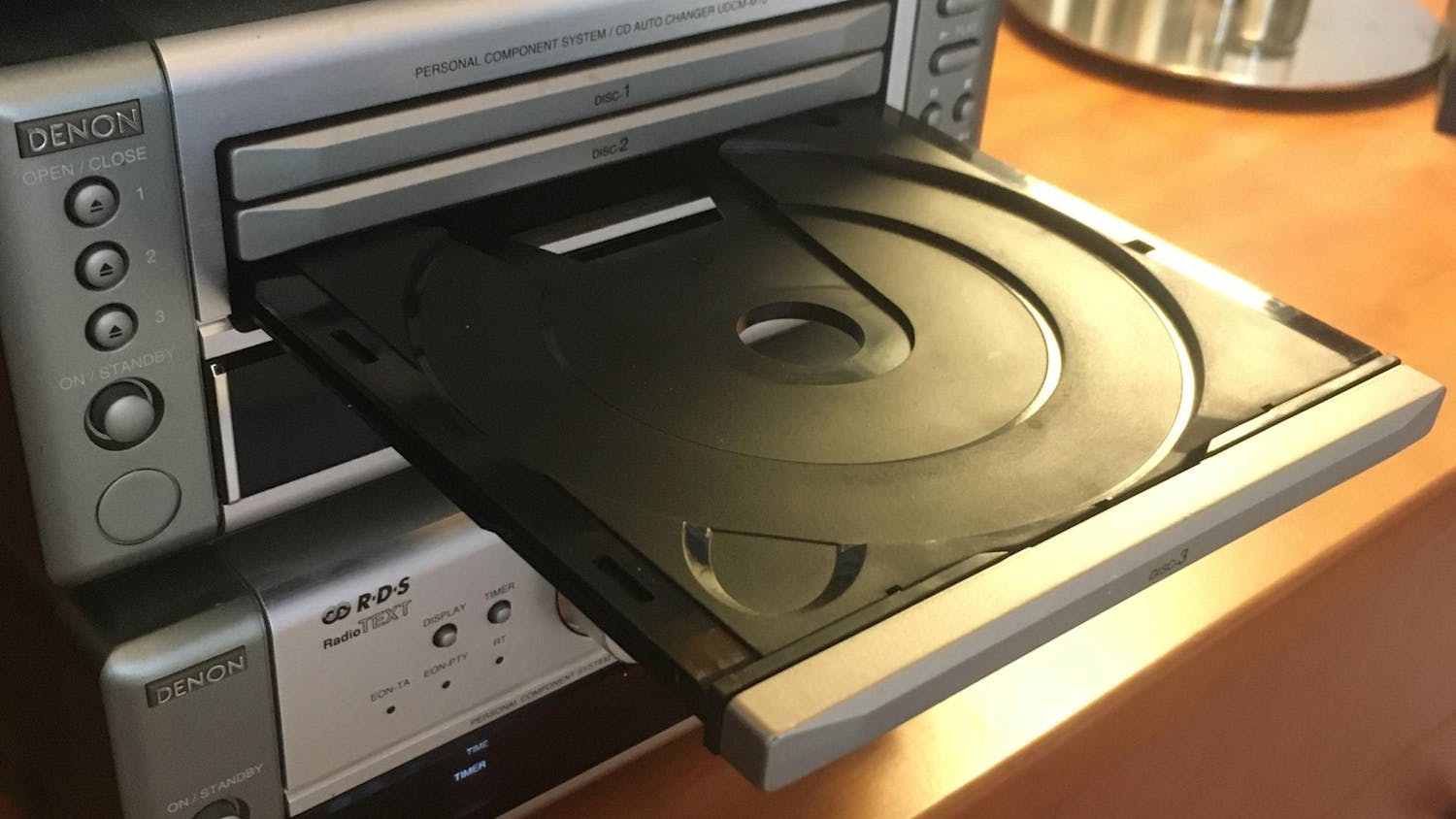“The first thought I had, sitting and listening to it, it was giving me goosebumps,”Pete Tong said in his 2013 interview with Daft Punk on BBC Radio 1.This particular promotion for “Random Access Memories” (2013) was a rare appearance for the French electronic music duo — they seldom make public appearances.
“It was almost like you got to make the record you always wanted to make … born in the ’70s, it’s like a homage to that period of time of your childhood,” Tong said.
Thomas Bangalter, one half of Daft Punk, commented that this was the first real studio album for the two (who completed most of their previous work in home studios).
“It really felt that this album was the same music that we’ve always done, and you’re right to say it’s maybe it’s the record we’ve always wanted to do because it felt like we’re doing the same thing, but this time, we're doing it for real,” Bangalter said.
“Random Access Memories,” which garnered many awards and critical praise, does almost feel like a greatest hits album for Bangalter and his partner, Guy-Manuel de Homem-Christo. And as the two recentlyannouncedtheir split (the video, titled “Epilogue,” featured Bangalter detonating like a bomb, while Homem-Christo walks off into the sunset), it makes sense that “Random Access Memories” would be the duo’s last release. Maybe hindsight’s involved, but there’s no doubt: The album is their magnum opus.
But before 2013’s juggernaut, Daft Punk spent decades becoming one of music’s most influential acts. Their dominance stretched from raves and American radios to film scores and legendary collaborations.Robotic helmets and staunch (but relative) anonymity gave a sense that the music was the most important takeaway. In other words, Daft Punk’s job wasn’t really to be well-known musicians, but rather to make well-known music. They’ve certainly succeeded on that front.
To celebrate the duo’s 28-year career — including perfectly pounding albums, gorgeous visual storytelling and live concerts that fans were chomping at the bit to get into — let’s take a deep dive into their music. It’s a great opportunity to “Lose Yourself to Dance” (2013), as the duo would want.
“Homework” (1997)
Daft Punk’s earlier years were filled with experimentation and exploration. A string of modest hit singles and live performances in the early-to-mid ’90s prompted record label offers, but it wasn’t until their album “Homework” that the duo found major success. Their debut album was a hit, credited with challenging the dominant eurodance and trance sounds. From jackhammering beats on “Revolution 909” to the euphoric thumping of “Around the World,” Daft Punk created a sonic world unmatched by their musical contemporaries.
Over 20 years later, that remains true. “Homework” still plays like an explosive entry into a new world. “High Fidelity” is a glitchy paradise, “Burnin’” funks and flows and “Indo Silver Club” sounds like something you’d absolutely lose your mind to if you heard it on the dance floor. The musicians crafted a no-skips album, a feat that’s so rarely ever replicated.
“Discovery” (2001)
And then they did it again. Not only is “Discovery” flawless, but also a completely fresh sound for the duo. Inspired by many genres — particularly ’80s post-disco, house and garage house — "Discovery” feels like a mishmash of what came before it. Warped vocals on “Digital Love” and “High Life” mix well into infectious beats, and the flow of “Voyager” is smooth and enticing. At the time, Daft Punk were masters at playing with music samples, especially on songs like "One More Time" (this contrasts from "Random Access Memories," an album that avoids sampling except on its final track). "Discovery" was an incredibly formative album not only for listeners, but for the duo themselves. It was really the first time the musicians took on their robot personas,claiming an accident in the studios had transformed them. It’s also Daft Punk's hallmark exploration into visual storytelling, with the animated “Interstella 5555: The 5tory of the 5ecret 5tar 5ystem” (2003) film accompanying the album.
As “Discovery” celebrates its 20th birthday on Feb. 26, it might be worthwhile to think of how its songs almost feel like pop music. Many of the tracks feature vocals (however altered) and choruses that seem to play with pop structure and expectations.“Face to Face” and "Digital Love" could play on the radio nowadays and “Something About Us” is a slow and sexy bop anyone could enjoy.
“Human After All” (2005)
Daft Punk’s third album might be their most outlandish, but the experimentations of dance-rock and electronic music prove worthwhile. Unlike its predecessors, “Human After All” had a very short production time (six weeks, compared to two years for “Discovery” and at least two years for “Homework”). Relatively sparse production is key on the title track, “Television Rules the Nation,” as well as “Technologic.” But “Human After All” also blasts some of the musicians’ best creations. “The Prime Time of Your Life” builds into an addictive distortion, “Robot Rock” is joyful mind-numbing noise and “The Brainwasher” melts away from static.
Around the release of “Human After All,” Daft Punk also produced “Musique, Vol. 1” (1993–2005) and “Alive 2007” — both hits for fans. The former includes the funky and flavorful “Musique,” a bouncy track worth attention. “Alive 2007” was a consolation prize for listeners who didn’t get tickets to a summer show of theirs in Paris. After Monday’s announcement, it’s painstakingly clear that the album will remain one of the rare opportunities to hear what it's like to see Daft Punk live.
“TRON: Legacy (Original Motion Picture Soundtrack)" (2010)
It’s quite impossible to state just how exciting this soundtrack’s combination of cinematic arrangements and electronic music is. Daft Punk managed to create a world defined by its sounds — foreboding and tense “The Grid,” dreamy and shimmering on “The Son of Flynn” and frantic and stylish on “Derezzed.” And that specificity was certainly achieved thanks to the film being cut to the music, rather than the standard other way around. It’s clear that the focus of "TRON: Legacy” (2010) was its score.
The remix album, “TRON: Legacy Reconfigured” (2011) plays well too, featuring a large cast of guest producers and musicians. Its highlights include “Derezzed (Remixed by The Glitch Mob),” “End of Line (Remixed by Boys Noize)” and “Arena (Remixed by The Japanese Popstars).” A complete edition of the soundtrack, including previously unheard material, was released in 2020.
“Random Access Memories” (2013)
There are many ways to argue that Daft Punk’s latest — and now last — work is also the duo’s best. Its copious accolades and awards, and its stellar commercial performance, are easy examples. The album’s singles were all hits, and not many 2010s songs had the longevity of “Get Lucky.” And for the first time, the duo were heavily collaborating with other artists to make musical magic — Giorgio Moroder, Julian Casablancas, Nile Rodgers and Pharrell Williams made appearances on the album.
But what really makes “Random Access Memories” special is its ability to weave together genres, history and styles to create a smooth and exploratory album. It’s cemented in the past, present and future. “Give Life Back to Music” sounds like an entryway into music of long ago, while “Lose Yourself to Dance (feat. Pharrell Williams)” is a sultry, stripped-back track. “Motherboard” plays like an alien planet banger and “Doin’ it Right (feat. Panda Bear)” ticks with sharp repetition and precision.
It’s certainly bittersweet to look back at “Random Access Memories” and the rest of Daft Punk’s discography, but thankfully the duo’s 28-year career is something to marvel at. Their music is genre-defying and genre-defining. And for many of us, it’s shaped our childhoods and adulthoods. That’s important when we think about the musicians’ artistic legacy. Daft Punk leaves behind a group of dedicated listeners and future artists who will continue to “Give Life Back to Music.”






